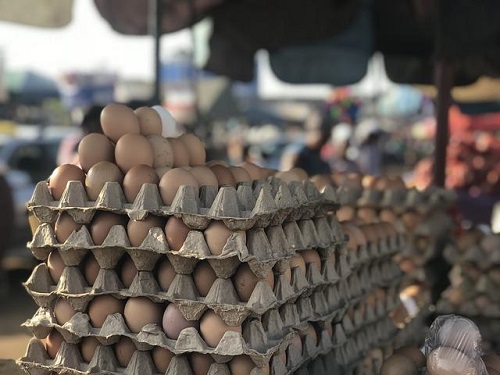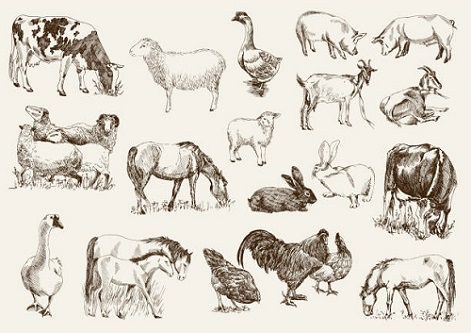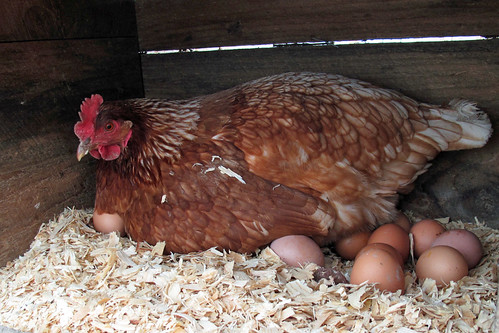The egg glut is a periodic oversupply of eggs in the market. This situation arises when there is an increase in the production of eggs and a decrease in the demand for them. The egg glut results in a decrease in the price of eggs and affect the livelihood of egg farmers.
The egg glut has been occurring more frequently in recent years, and it is having a devastating effect on the egg industry. In this article, we will explain everything you need to know about the egg glut in Nigeria – what it is, its causes, and its effects. We will also discuss what can be done to mitigate the effects of this situation.
What is Egg Glut?
Egg glut is the situation where the number of eggs in the market or produced is greater than the demand causing an undesirable accumulation of table eggs in the farms or stores. When the level or pattern with which consumers demand table eggs drops or reduces due to certain reasons, there is a high number of table eggs left unsold at the farm gates, egg depots or retail outlets.
The egg glut causes an economic imbalance because it usually leads to financial losses for most egg producers and merchants. One thing about the egg glut in Nigeria is that it happens every year and multiple times within one year.
Periods and Causes of Egg Glut
The table eggs market in Nigeria witnesses two to four egg gluts in a year. While some periods are very predictable, others often happen as a result of some unpredicted situations. It is good to reiterate that most poultry farmers in Nigeria are focused on the production aspect of the business and give little or no attention to the marketing part of it. This is why they are always caught unaware when an egg glut occurs.
The responsibilities or roles of egg marketing have been left for the egg distributors or middlemen to handle. The middlemen often worsen the problems for the farmers each time the demand for table eggs drops. This now leaves the farmers no choice other than to play to the middlemen’s rules.
Seasons or periods when egg gluts occur in Nigeria are as follows:
1. January and February
There is always a short-term egg glut in January and February mainly because people are trying to avoid spending carelessly in anticipation of their new year’s budgets after spending money for the Christmas and New Year celebrations. Some also try to lower their spending as they plan to sort important bills such as their wards’ school fees and rents. Another reason is the reduced hawking of eggs on the street because the students are back to classes.
2. June and July
The eggs of guinea fowls come out in the northern states of Nigeria during these periods. This results in a decrease in the demand for chicken eggs because guinea fowl eggs are cheaper in this region. Down in southwest Nigeria, new maize and walnuts also come out in these months which badly affect table egg demand. Egg glut in this period may last for 8-10 weeks or until new yams saturate the market.
3. October and November
During this period, students will be in school after a long vacation. Therefore, there is a reduction in street hawking. Also, parents focus more on the payment of school fees for their children than on buying eggs.
4. Religion-related Occurrences
An egg glut often occurs soon after the Muslim fasting (Ramadan). This is linked to the fact that Muslim egg merchants usually withdraw their egg business capital in preparation for Hajj. It is also assumed that most egg merchants suspend business or transactions in this period of the year. Egg glut in this period depends on the Ramadan month within a particular year and it may last for 6-9 weeks.
5. Miscellaneous Occurrences
This may be caused by the country’s unpredictable industrial, economic and socio-political crises. For example, when there is political unrest or a pandemic, egg merchants tend to halt business until the environment is peaceful or friendly enough to continue trading.
Effects or Disadvantages of Egg Glut
One of the effects of egg gluts is the huge crashing of egg prices in a region which is usually at the disadvantage of the farmer. Some of the effects of egg glut are highlighted below.
- There is a huge fall in the demand for table eggs at the farm gate. The stock of eggs in the store increases every day as buyers are buying less.
- The farm gate prices of eggs will drop daily and weekly.
- The buyers (wholesalers and retailers) would request to buy now and pay later (credit purchases).
- The farmer incurs additional costs to purchase new egg trays as the number of eggs in the egg stores increases.
- Buyers’ preference for fresher eggs increases while they try to avoid eggs that have stayed long in the store.
- Some of the old eggs get bad due to long storage days.
- The cash flow of the farm is badly affected because the only option available for the farmer is selling to the big buyers on credit to be paid later.
- The farmer may be faced with psychological trauma especially when huge losses are made due to price crashes or egg spoilage.
- The whole farm environment usually looks unfriendly or tense. When the farm owner is not happy, why should the employees be happy?
- For a farmer that had a loan to repay, there will be a default of loan repayment due to altered cash flow.
Possible Solutions to Egg Glut
One of the reasons why most poultry farmers are badly affected by egg gluts is the poor attitude to the marketing of their eggs. Most farmers have no egg marketing plans. They simply wait for their buyers to come and patronize them either through referral or wait for luck. As a farmer, while paying attention to the egg production aspect of your farm, you should also show interest in how the eggs produced by your birds are sold. You should set reasonable or moderate prices on your eggs, create good distribution channels, have attractive egg packaging and develop strategic market promotion.
Also Read: Top 10 Ways to Sell Livestock Farm Products Quickly
Other possible solutions to egg gluts include:
- Prepare against an imminent egg glut. This includes absorbing more egg buyers, allowing an advance payment, culling old or non-performing chickens and avoiding obtaining any loan or credit facilities.
- Develop good egg grading and packaging. Grade the eggs well and offer bonuses to customers. You should also add extra value through nice packaging.
- Convert to egg powder or other egg products. You can convert some of your eggs to other egg products such as egg powder. While this is an expensive venture, it is worth trying if financing is not a problem.
- Develop a moderate egg pricing policy. Ensure to conduct egg price surveys regularly. You can also get valuable information from customers and use the information acquired when setting egg prices before and during a glut.
- Seek government interventions. This usually works by coming together as a group and nudging the government to buy the eggs from all associated farmers and resell them at a cheaper rate to consumers. The government can also come up with helpful programs such as the school feeding program.
- Create public awareness and get updated information. Poultry farmers should individually and collectively sensitize or educate the public on the nutritional and health benefits of eggs. Eating 1-2 eggs per day is still considered safe for a healthy adult.



